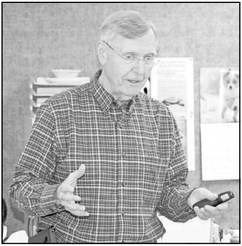Small changes can make a big difference for brain health


There are small changes you can make every day to increase your overall health. That’s the message of a class, hosted by Community Ed and the Alzheimer’s Association, Nov. 13,...


There are small changes you can make every day to increase your overall health. That’s the message of a class, hosted by Community Ed and the Alzheimer’s Association, Nov. 13,...